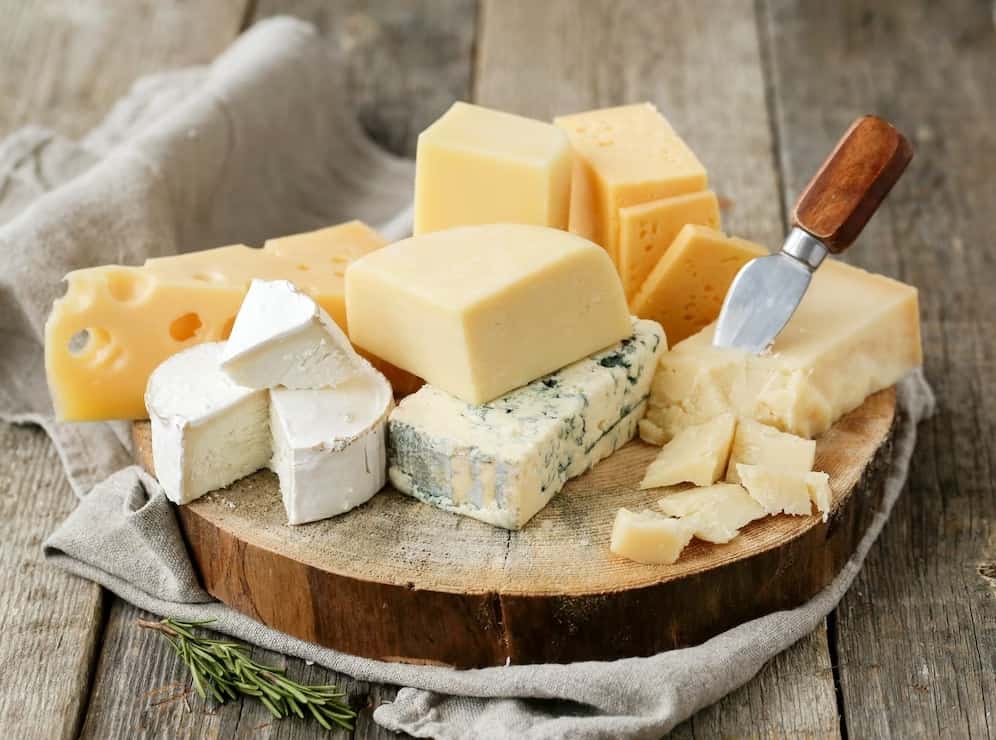Cheese, a dairy product enjoyed worldwide, is not only delicious but also offers a range of surprising health benefits. While it’s often viewed as a high-fat indulgence, cheese can be a nutritious addition to your diet when consumed in moderation. In this informative article, we’ll delve into the nutritional profile and explore the various ways in which cheese can positively impact your health.
Introduction to Cheese
Cheese is a dairy product that has been part of human diets for centuries. It is made by coagulating milk proteins (usually from cows, goats, or sheep) and then aging and curing the resulting curd. The wide variety of cheeses available, from creamy brie to sharp cheddar, offers diverse flavors and textures for culinary enjoyment.
Nutritional Profile of Cheese
Before we dive into the health benefits, let’s take a look at the nutritional content of cheese:
1. Protein:
- Cheese is an excellent source of high-quality protein, making it a valuable food for muscle growth and repair.
2. Vitamins:
- It contains essential vitamins, including vitamin A, vitamin B12, riboflavin (vitamin B2), and niacin (vitamin B3). These vitamins play various roles in maintaining overall health.
3. Minerals:
- Cheese provides essential minerals such as calcium, phosphorus, and zinc, which are crucial for bone health, cell function, and immunity.
4. Fats:
- Cheese is a source of saturated fats, but it also contains monounsaturated and polyunsaturated fats. The specific fat content varies depending on the type of cheese.
5. Probiotics:
- Some cheeses, such as certain types of aged cheeses and fermented varieties, contain probiotics that support gut health.
Health Benefits of Cheese
Now, let’s explore the numerous health benefits of incorporating cheese into your diet:
1. Bone Health:
Cheese is a rich source of calcium, which is essential for maintaining strong and healthy bones. It also contains vitamin D, which aids in calcium absorption.
2. Protein Source:
Cheese is an excellent source of protein, making it a valuable addition to vegetarian and vegan diets. Protein is essential for muscle growth, tissue repair, and overall body function.
3. Dental Health:
Cheese may help protect teeth from cavities and decay. It contains casein, a protein that can promote dental health by strengthening tooth enamel.
4. Weight Management:
Despite its calorie content, cheese’s high protein and fat content can help promote a feeling of fullness and reduce overall calorie intake. This can aid in weight management when consumed in moderation.
5. Gut Health:
Certain types of cheese, particularly those containing probiotics, can support a healthy gut microbiome. Probiotics are beneficial bacteria that aid digestion and boost immunity.
6. Heart Health:
While cheese does contain saturated fats, some studies suggest that moderate consumption may not significantly increase the risk of heart disease. The presence of nutrients like calcium, potassium, and magnesium can contribute to heart health.
7. Nutrient Density:
Cheese is a nutrient-dense food, meaning it provides a significant amount of essential nutrients in a relatively small serving.
8. Improved Mood:
Cheese contains tryptophan, an amino acid that can contribute to improved mood and reduced symptoms of depression.
9. Skin Health:
The vitamin B complex found in cheese can help maintain healthy skin by promoting cell turnover and repair.
Precautions and Considerations
While cheese offers numerous health benefits, it’s crucial to consume it in moderation. Excessive cheese consumption can lead to weight gain due to its calorie and fat content. Additionally, individuals with lactose intolerance or dairy allergies should choose lactose-free or dairy-free cheese options.
Conclusion
Cheese is more than just a delectable topping for pizza or a cheesy pasta sauce; it’s a nutritional powerhouse that can provide various health benefits when enjoyed in moderation. Whether you’re looking to support bone health, improve your gut microbiome, or add a protein-rich food to your diet, cheese can be a valuable addition to your culinary repertoire. So, the next time you savor a slice of cheese, you can relish not only its taste but also the potential benefits it brings to your health and well-being.



